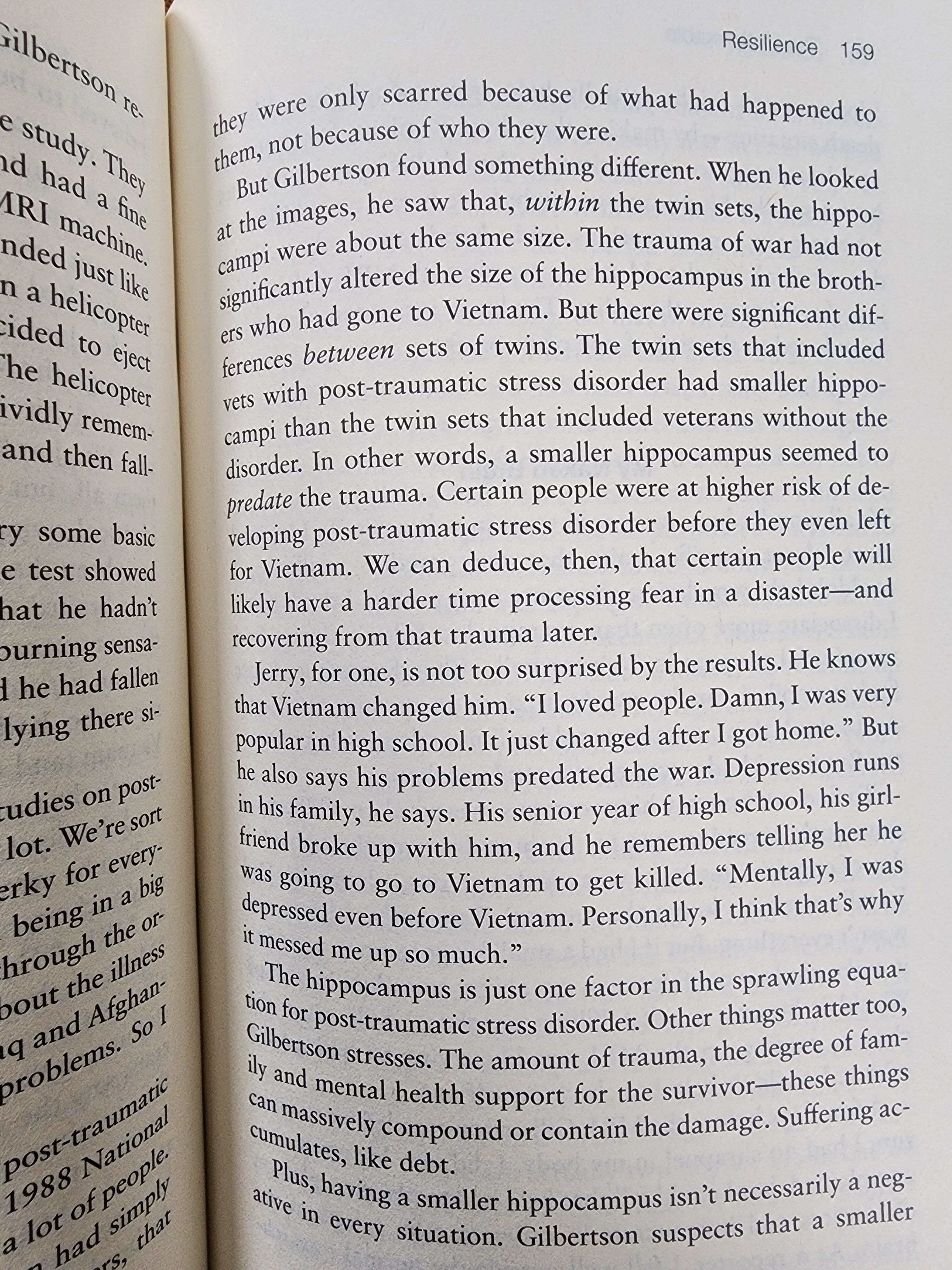A page from The Unthinkable: Who Survives When Disaster Strikes - and Why by Amanda Ripley
I guess it’s not exactly surprising, but it seems to explain a lot of things I’m witnessing in my later adulthood. I’ve always felt deeply impressed by selfless heroes, but I never really pondered the profile of heroism.
Empathy being a sign of privilege isn’t the truth I needed to read today :/
In a weird way, having emotionally available and supportive parents is absolutely a privilege. People are able to develop empathy in spite of bad parents, and good parenting isn’t a guarantee to a good person, but parenting is a major factor for life success. I wish it weren’t, and I hope we can build a society that could guarantee every child full opportunities.
You can break the cycle
People are terrified of empathy. Empathy is the capacity (or even the obligation) to experience the suffering of others. Suffering HURTS. Empathy HURTS. People will do anything to avoid thinking about the victim on their plate.
Aversion of pain is a pretty powerful deterrent. I guess there may need to be a critical mass of empathic individuals in a community to tip the scale in favor of everyone being more empathic and feeling generally better for it. Misery shared and understood amongst peers seems to always feel better than misery in solitude.
A history of trauma is more common among people who refuse to harm animals on the basis of empathy (as opposed to being plant based for their health or the environment or something) than among the general population. I suspect that empathy is innate. I suspect that people who have experienced trauma have less capacity to ignore, interfere with, and override their empathy.
But isn’t this argument exactly what the book above is saying is false in their findings? Rescuers tended to have better relationships with their parents and given less traumatic punishments.
I suppose you could be referring to non-familial or non-violent traumas. In any case though, this would be sympathy rather than empathy. Those people are less likely to traumatize or otherwise harm a creature because they sympathize due to their personal trauma
The text does not speak of trauma. Trauma is not “bad things that happen to you,” it is “things that happen to you that break you.” Two people might have the same experience. One receives life-long trauma and one receives a valuable lesson. You might expect people who have been beaten by their parents to be more likely to bear trauma, but this text doesn’t make that claim. You’d have to call on something else.
This text appears to me to be saying that children who witness their parents suppressing their empathy (such as they must to inflict physical pain) are more likely to do the same.
Ripley discusses trauma early in the book and there appears to be some correlation between the size of a person’s hippocampus and their capacity to absorb and rebound from traumatic events.

I think there’s also a sort of autodidactic type of learning empathy, even if your parents don’t teach it to you.
I think it’s — at least for a part of the population — a very natural thing and would have to be actively discouraged as a kid to make it go away.
Although idk I did read a ton so maybe the books raised me idk
Reading fiction teaches empathy, even if you don’t have it naturally or your parents are shit humans. There’s something about the way a novel puts you in the back seat of someone’s mind, the cliche “walk a mile in someone else’s shoes.”
Which is why it’s concerning that:
Many adults don’t read a book after high school. Many high schools don’t even assign books anymore - just passages, because that’s what on the ACT.
Our shitty education system makes kids associate reading a book with homework, and many adults don’t outgrow that association
Many kids in the US weren’t even taught phonics.
Teachers were forced to use an expensive curriculum program that didn’t work - and similar shit had been proven not to work in the 70’s. For lots of children, reading is too difficult to be enjoyable because they don’t know phonics.
It’s called trauma.
This book is fantastic as a whole. Highly recommend.


